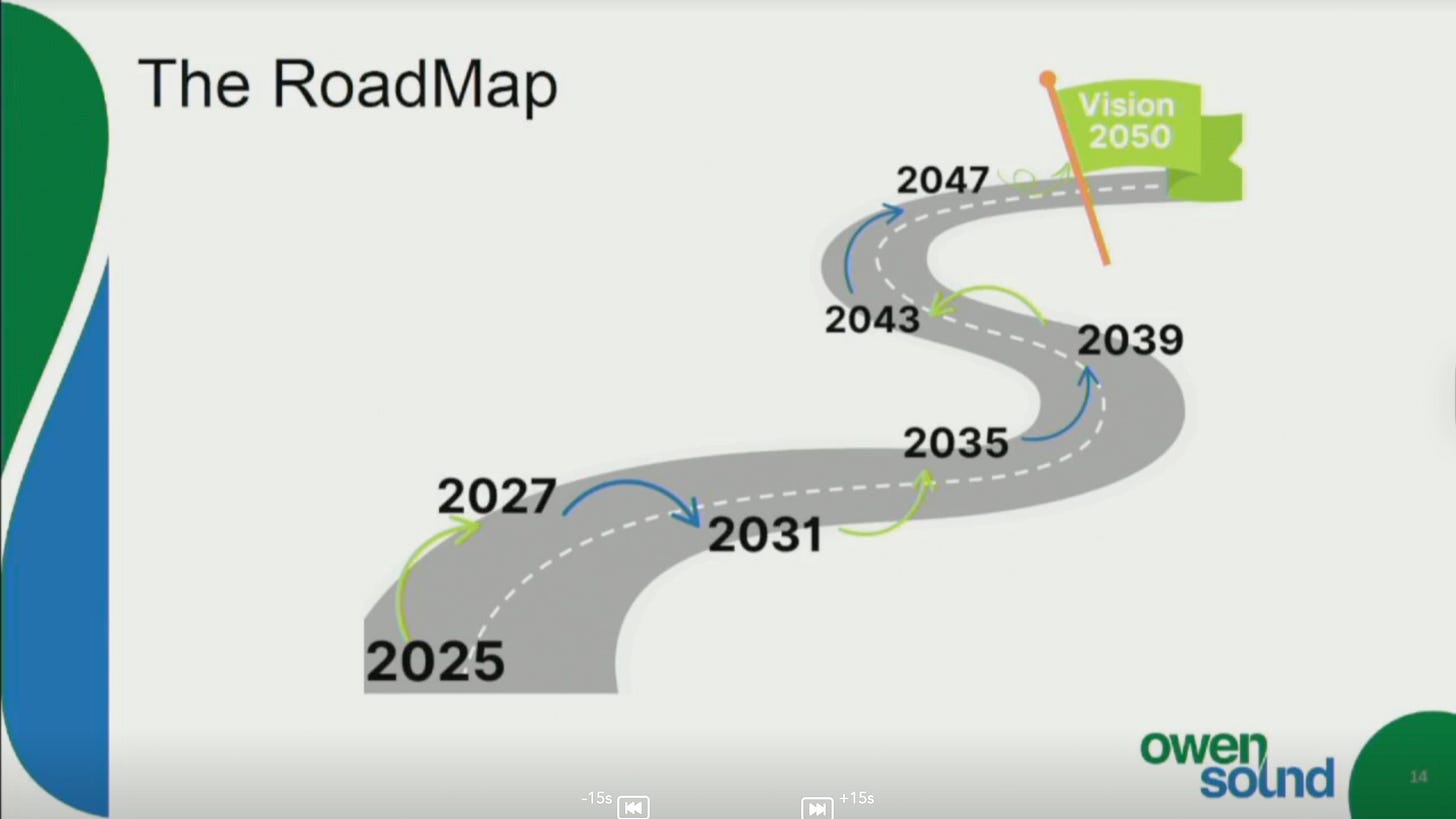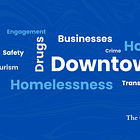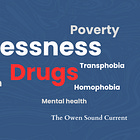Owen Sound Council Approves Vision 2050 Plan After Defeating All Proposed Amendments
Owen Sound City Council approved its Vision 2050 Strategic Plan on Oct. 6, setting out long-term goals for the next 25 years while rejecting amendments to expand how success will be measured.

Owen Sound City Council received the outcome of its initial Vision 2050 strategic plan on Monday evening, approving a final report that contains the metrics against which future councils will measure their success.
The plan is intended to serve as a foundation for all major City decisions, from budgeting and infrastructure priorities to how progress will be measured over the next quarter-century.
Several attempts by one Councilor to amend the document failed, including proposals to add indicators such as housing affordability, household income, transit ridership, and the city’s Crime Severity Index to success metrics.
Vision 2050 promises a 25-year guide for how the city will grow, adapt, and collaborate with residents and partners. The Long-Term Strategic Plan, presented by Michelle Palmer, Senior Manager of Strategic Initiatives and Operational Effectiveness, came before Council on October 6, 2025.
The plan established a shared community vision built around seven key themes: a prosperous economy, environmental resilience, cultural celebration, city-building, mobility and accessibility, safety, and respectful relationships.
Early in her presentation, Palmer explained why having a strategic plan is important and how it helps municipalities “navigate challenges and reveal opportunities.”
“Planning for the future helps us make good decisions today,” Palmer said, adding, “More than ever, right now is a time of great change on many fronts — the economy, climate, culture, and public safety to name just a few.”
The strategic plan reflects the community’s priorities and “what we want Owen Sound to be a generation from now,” Palmer noted, promising it will help the City be proactive and take action on important initiatives.
The 21-page document contains a number of measurable targets tied to each of its seven theme areas, including:
Theme 1: Prosperous City - Industrial, Commercial, Institutional (ICI) space: Increase by 25,000 square feet each year.
Theme 2: Green & Resilient City - Increase Green City Services satisfaction by 5% per survey cycle until an 80% satisfaction rate is reached, then maintain that level.
Theme 3: Celebrating & Embracing Culture - Increase the share of residents who agree Owen Sound is welcoming and inclusive by 2% per survey cycle until reaching 80%, then maintain that level.
Theme 4: City Building - Raise satisfaction with City Building Services (e.g., library, recreation) and downtown revitalization by 5% per survey cycle until achieving 80%, then maintain.
Theme 5: A City That Moves - Improve Walk Score by 10 points every five years.
Theme 6: Safe City - Improve satisfaction with police, fire, and by-law services by 5% per survey cycle until reaching 80%, then maintain.
Theme 7: Fostering Mutually Beneficial & Respectful Relationships - Raise satisfaction with City staff interactions by 2% per survey cycle until reaching 80%, then maintain.
Councilors Debate Quality and Necessity of Success Metrics
Councilor Jon Farmer said that while he appreciates the work staff put into the Strategic Plan he believes there is room for improvement in the metrics across all seven themes.
“I don’t think we’re doing the best we can for the next six Councils that are going to live with this strategic plan,” Farmer argued, adding, “There are what would seem to me to be important data points that are missing, and I think there’s an overreliance on the Citizen Satisfaction Survey.”
While that survey conducted in 2021 was reliable, Farmer said, “it only determines people’s subjective satisfaction, and qualitative measures are really important but a statistically sound measurement of a subjective assessment is still a subjective assessment.”
He also questioned whether specific metrics in the plan are truly indicative of satisfaction in any given area and cited several examples.
Farmer requested that the metrics be removed from the report approval motion and that staff bring back a separate report on those.
“My intention is to say, this is a great plan, but we need better numbers,” he explained.
Deputy Mayor Scott Greig argued that it was too late to request such an amendment and that if anyone on Council had concerns with any of the KPIs (metrics), “you had an opportunity a couple of months ago when the report came forward to Council and there was concerns expressed or discussed at that time.”
Greig said the draft in front of Council was approved and “fully supported” by the Strategic Planning Ad Hoc Committee.
While he acknowledged he agreed with Farmer on some points, the Deputy Mayor said what the Councilor was asking for was “way, way beyond where the strategic plan is positioned in the hierarchy of documents that guide the city.”
Farmer’s request to amend the motion to exclude the metrics was defeated by a vote of Council.
Councilor Travis Dodd requested a definition of “survey cycles” and asked how often these would occur. Palmer indicated she would like to see the city survey residents on a three-year cycle.
Council Rejects Housing Affordability, Transit Ridership, Household Income, Crime Severity Index as Measures of Success
Farmer then requested a second amendment, this one to add more specific metrics to “Theme 4: City Building” to factor in federal Census data on household incomes and other metrics around housing affordability, suitability, adequacy, and poverty.
That was defeated with no discussion.
Farmer’s next motion was to amend “Theme 5: A City That Moves” by adding metrics for Bike Score and annual transit ridership numbers.
Greig again disagreed, and said, “Again, there’s components in that amendment that will be responded to when the city undertakes that Master Transportation Plan, Census information usage.” He noted there’s a “whole plethora” of information available in other report executive summaries and appendices and for that reason, he would not support the amendment to add the suggested metrics to the “City That Moves” section of the strategic plan.
“If we’re relying on every future activity to tell us whether we’re getting there, then I don’t know why we have metrics at all,” Farmer replied. “If the data’s already there and it’s reliable, I don’t know why we would not use it.”
That amendment was also defeated 7-2.
Farmer’s third motion to amend the report recommendations requested the addition of Census data on income brackets and employment-related income to how the City would measure the success of its “Theme 1: Prosperous City” initiatives.
That was defeated by a vote of 7-2.
Farmer’s fourth motion was to amend the report to include Owen Sound’s score in the Crime Severity Index as a metric by which “Theme 6: Safe City” would be measured.
Councilor Suneet Kukreja said those statistics are already available through Owen Sound Police Services. “It’s an ongoing process; it’s already available.”
“All of the information we’re talking about is going to be available,” Farmer responded. “It’s whether or not this document is going to point to it to say, ‘This is one of the ways we’re assessing whether or not we’re being successful.”
He pointed out that while a sense of security, as measured by a satisfaction survey, tells the organization how people are feeling, it’s subjective. The Crime Severity Index, on the other hand, contains hard data that quantifies what’s actually happening.
That motion was also defeated.
The debate over metrics echoed earlier concerns about transparency and accountability in the Vision 2050 process, particularly regarding public access to the raw survey data that informed the plan.
Report Approval Follows Dispute Over Public Access to Vision 2050 Survey Data
In the end, Council passed the original motion to approve the final draft of the Future Owen Sound: 2050 Vision Long-Term Strategic Plan as presented.
Mayor Ian Boddy thanked all involved and said, “It’s good to get this far, and I think it’s going to be good for future councilors to be able to work through these.”
The City of Owen Sound approved a budget of $100,000 in the 2024 budget for the Vision 2050 strategic planning process, with $80,000 allocated to engage a consultant for public outreach. That engagement produced a 21-page survey report delivered in September 2024, and a 40-page final report delivered in June 2025.
While the city reported in media releases and staff reports that the Vision 2050 survey had gathered nearly 5,000 responses to survey questions that allowed participants to submit a written response, they decided not to release the full survey dataset to the public.
In response to a November 2024 media request for the full survey results, Palmer informed Owen Sound Current in an email copied to the City Manager, Tim Simmonds:
“…the City won’t be releasing raw survey data in accordance with best practices. This decision was made after consulting with [the Vision 2050 consultant] on best practices for sharing raw survey data.
I understand that you have also reached out to members of Council and I have shared the following with them as well.
Quite frankly, the expectation that the City would release the raw survey data so that a community member could do their own analysis, as they don’t trust the analysis done by a professional, is insulting to [the Vision 2050 consultant]’s professional practice and to City staff.”
When notified of staff’s decision to withhold the results, the Mayor and Council did not respond.
In a process that took three months and cost $517.50, the Owen Sound Current obtained the survey results through a Freedom of Information request under MFIPPA and published them online to support transparency in community planning and ensure residents have access to the same data used by City decision-makers.
Survey results are also being analyzed and shared in Owen Sound Current’s ongoing Vision 2050 series, which highlights resident input and suggestions each week by focusing on responses to a specific survey question:
In December 2024, Council approved an additional $100,000 in this year’s budget for the first stage of Vision 2050 implementation.
With Vision 2050 now approved, future councils will measure progress through this Council’s largely satisfaction-based indicators — a framework that measures how people feel about progress, but stops short of defining what that progress should be.
For more information, see the Future Owen Sound Long-Term Strategic Plan on the City’s website.







